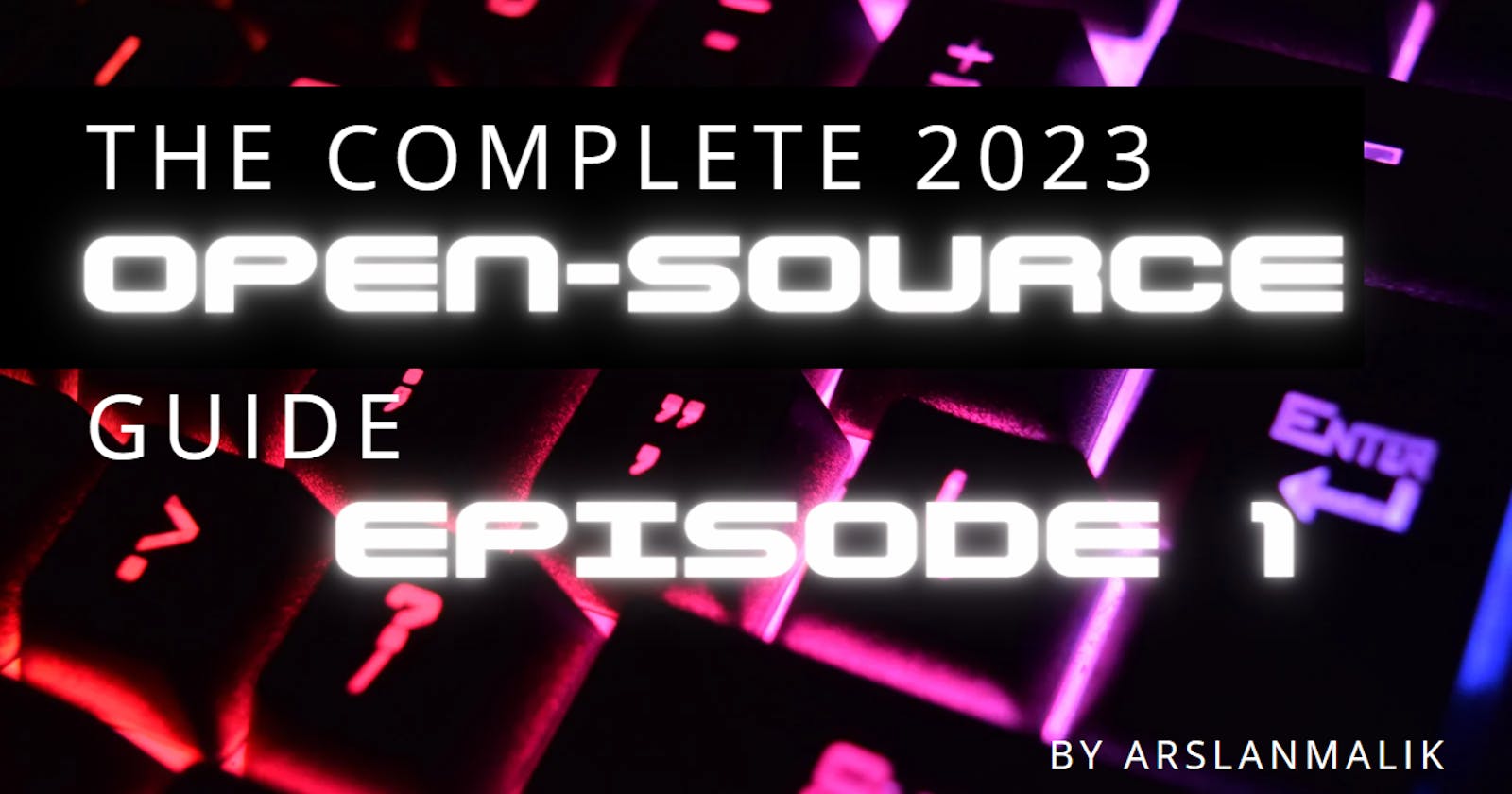Prerequisites for Contributing to Open-Source
What you need to get started!
What is open-source?
Open source is like a big recipe that lots of people can work on together. Imagine a group of friends who all like to cook. They get together and share their favorite recipes with each other. They can each try out the recipes, add their own special touches, and share the results with the group.
Open source is like that, but for computer programs instead of food. Instead of sharing recipes, people share the instructions for making computer programs. Anyone can see the instructions, try them out, and add their own ideas to make the program better. And just like friends who cook together, people who work on open-source programs can share their work and collaborate to make the program even better.
So, open source is all about sharing and collaborating on computer programs, just like friends who cook together and share their recipes!
Why is open-source trending?
Open-source software has been gaining popularity over the years, as it is free and provides access to high-quality software to anyone. Open-source software is created by developers from all over the world, and anyone can contribute to it.
Let's learn about how to start:
Starting open-source development can be overwhelming, especially for new developers.
Here are some prerequisites for starting open source:
Know the basics of programming:
Before you start contributing to open-source projects, it is essential to have a strong foundation in programming. Understanding programming concepts, data structures, and algorithms is vital. You can learn programming through various online courses, tutorials, and books.
Here's are some links for free tutorials to get started with programming:
Understand the basics of version control:
Version control systems like Git are essential for open source development. It is essential to understand the basics of version control, including creating branches, committing changes, merging branches, and resolving conflicts. There are many online tutorials and courses available to help you learn version control.
Here are some of the links I recommend:
Familiarize yourself with open-source licensing:
Open-source licenses govern how the software can be used, distributed, and modified. It is crucial to understand the different types of open-source licenses and their implications. Some popular open-source licenses include MIT, Apache, and GPL.
Links:
Find a domain that interests you:
To find a domain in development that interests you, start by identifying your personal interests and passions. Consider what you enjoy doing in your free time or what subjects you are curious about. Then, research different areas within the field of development that align with those interests. Look for resources like blogs, forums, or online communities related to those areas to get a better understanding of what the work involves.
Additionally, consider taking courses or getting certified in a specific area to deepen your knowledge and skills.
Ultimately, finding a domain in development that interests you is a process of exploration and self-discovery, and it may take some time and experimentation to find the right fit.
Here are some of the free roadmaps I recommend for development:
Join a community :
Joining a community can help you become a better developer in several ways. Firstly, being part of a community allows you to connect with other developers who share similar interests and goals. This can provide opportunities for collaboration and knowledge sharing, which can help you learn new skills and approaches. Additionally, being part of a community can provide access to mentorship and guidance from more experienced developers, which can help you improve your skills and develop a better understanding of the industry. Finally, being part of a community can provide opportunities to participate in events, hackathons or open-source projects, which can help you develop your portfolio and gain real-world experience. Overall, joining a community is a great way to stay motivated, learn new skills and grow as a developer.
Here are some communities I recommend :
Follow the right people:
Following the right people in the development industry can help you become a better developer in several ways. Firstly, by following thought leaders and experts in the field, you can stay up to date on the latest trends, technologies and best practices. This can help you improve your skills and knowledge and keep your work relevant. Additionally, by following successful developers, you can gain insights into how they approach their work, learn from their experiences, and emulate their behaviors. Finally, by following peers and colleagues in the industry, you can engage in conversations and debates, share knowledge and experiences, and build a network of support.
Overall, following the right people is an effective way to learn, grow, and stay connected in the development community.
Here are some people I personally admire and follow:
Conclusion:
In conclusion, starting open source development requires a strong foundation in programming, understanding version control, open source licensing, finding a domain that interests you, joining a community, and following the right people.
With these prerequisites in place, you can start contributing to open-source projects and making a difference in the world of software development.
Hope you learned more about the basic requirement for contributing to open source in this blog, Make sure to subscribe to my newsletter for the next episode of THE COMPLETE OPEN SOURCE GUIDE 2023
Happy Learning!
Feel free to message me on my Social accounts for any help:
